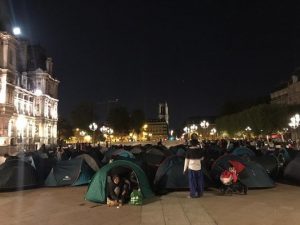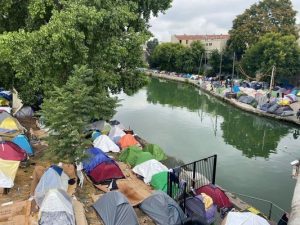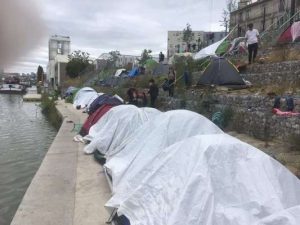 After a month of alerts to the services of the Paris City Hall and the Ile-de-France Prefecture remained unanswered, 107 exiled families living on the streets settled on Monday August 31 on the forecourt of the City Hall to put an end to this unworthy situation. The objective: to obtain permanent accommodation for all of them.
After a month of alerts to the services of the Paris City Hall and the Ile-de-France Prefecture remained unanswered, 107 exiled families living on the streets settled on Monday August 31 on the forecourt of the City Hall to put an end to this unworthy situation. The objective: to obtain permanent accommodation for all of them.
Since 2015, the public authorities have shown their inability to provide a dignified welcome for exiled people arriving in Paris, in defiance of their legal obligations. Among these people are many families and single women whose time spent on the streets is constantly increasing before they are offered care.
Every evening since 2017, the association Utopia 56 has been trying as best it can to make up for these state and municipal shortcomings via a network of solidarity-based shelters. This network is made up of about 250 people living in the Ile-de-France region who take in single women, families and couples living on the streets. [Read More]


